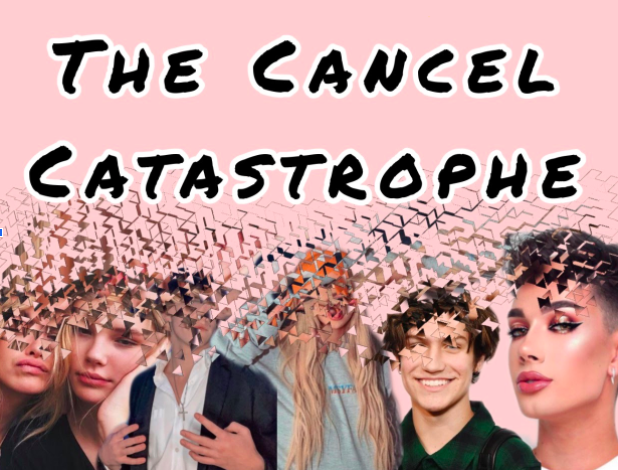Call it quits on cancel culture
Social media stars like Summer Mckeen, Ellie Thumann, Max Dressler, Tana Mongeau, Chase Hudson, and James Charles all continue to find success despite cancellations for offensive behavior.
June 2, 2020
Watching the fall of celebrities as a result of offensive behavior over the past few years, a phenomenon known as “being canceled,” outwardly appears to be an effective means of cleansing the public sphere of inappropriate behavior.
Unfortunately, an exercise in accountability quickly devolved into a toxic pattern of behavior, as such outcry hardly makes a lasting impact, and the hammer of public opinion tends to discriminate on how hard it falls.
The cycle of cancel culture begins somewhat predictably, as past or current offensive behavior falls into the public eye. Soon, individuals call for the end of the perpetrator’s career and dismantling of their cultural status.
In most cases, the backlash is warranted. Public figures have been caught making horribly racist or sexist remarks, assaulting others, or propagating hate and intolerance. In these cases, boycotts of their work are rightfully founded as the public moves towards establishing a set of moral norms for content creators and celebrities.
However, very few canceled celebrities truly face career setbacks. On a case by case basis, it can be seen that most actually bounce back, as the backlash they face from the media inspires sympathy in fans and other stars.
According to internet culture journalist Aja Ramano, “the debate around cancel culture is partly about how we treat each other, and partly about frustration with the lack of real consequences for powerful people.”
Cancel culture becomes toxic when it simultaneously fails to differentiate between offenses and trivializes genuine wrongdoings.
A perfect example of this behavior can be seen in the app Tik Tok.
Recently Chase Hudson and Emma Lu, two popular creators on the app, were under fire for the same offense. Videos of both individuals had surfaced showing them using inappropriate racial slurs. However, their downfalls were hardly equal. Chase faced little to no backlash, while Emma saw a complete derailing of her career.
Additionally, the rising rates of cancellation of TikTok influencers serve to minimize the backlash faced by actual crimes. Rather than differentiating, it equates different offenses as deserving of the same consequences.
This becomes an issue when incidences of disrespect and ignorance garner the same or larger backlash than legal crimes, such as rape or assault. As the event then turns into a meme, the complaints about genuine crimes are then invalidated.
Moving forward, netizens would do well to take a step back from these situations for a more nuanced and less spiteful response. While it hurts to see individuals one looks up to fail in such a way, the lightning strike of cancellation has proven itself to be both ineffective and harmful.


